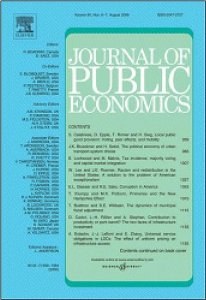
Agostinelli, F., Doepke, M., Sorrenti, G. and Zilibotti, F. (2022). When the great equalizer shuts down: Schools, peers, and parents in pandemic times Journal of Public Economics, 206:.
-
Affiliated author
-
Publication year2022
-
JournalJournal of Public Economics
What are the effects of school closures during the Covid-19 pandemic on children{\textquoteright}s education? Online education is an imperfect substitute for in-person learning, particularly for children from low-income families. Peer effects also change: schools allow children from different socio-economic backgrounds to mix together, and this effect is lost when schools are closed. Another factor is the response of parents, some of whom compensate for the changed environment through their own efforts, while others are unable to do so. We examine the interaction of these factors with the aid of a structural model of skill formation. We find that school closures have a large, persistent, and unequal effect on human capital accumulation. High school students from low-income neighborhoods suffer a learning loss of 0.4 standard deviations after a one-year school closure, whereas children from high-income neighborhoods initially remain unscathed. The channels operating through schools, peers, and parents all contribute to growing educational inequality during the pandemic.